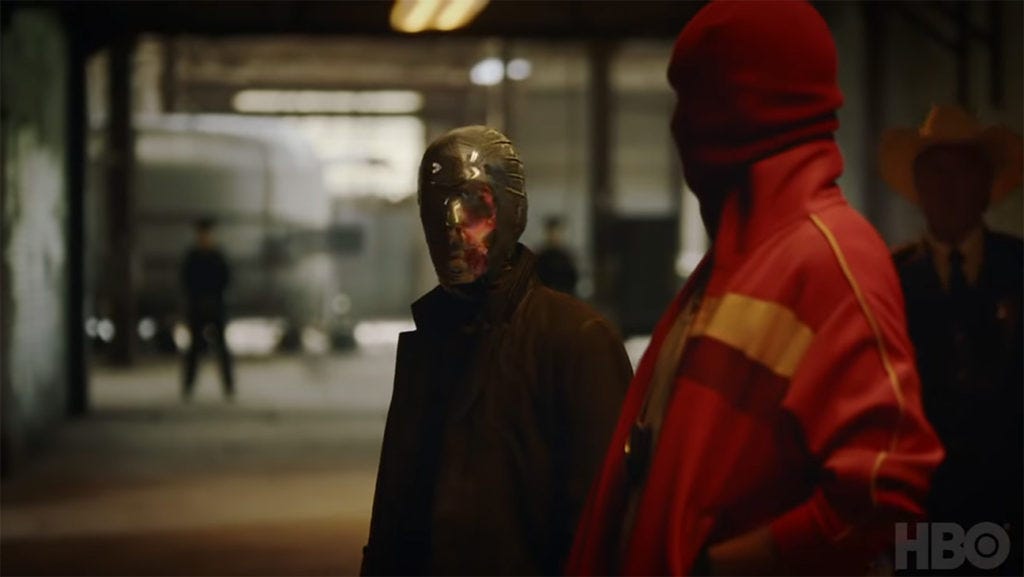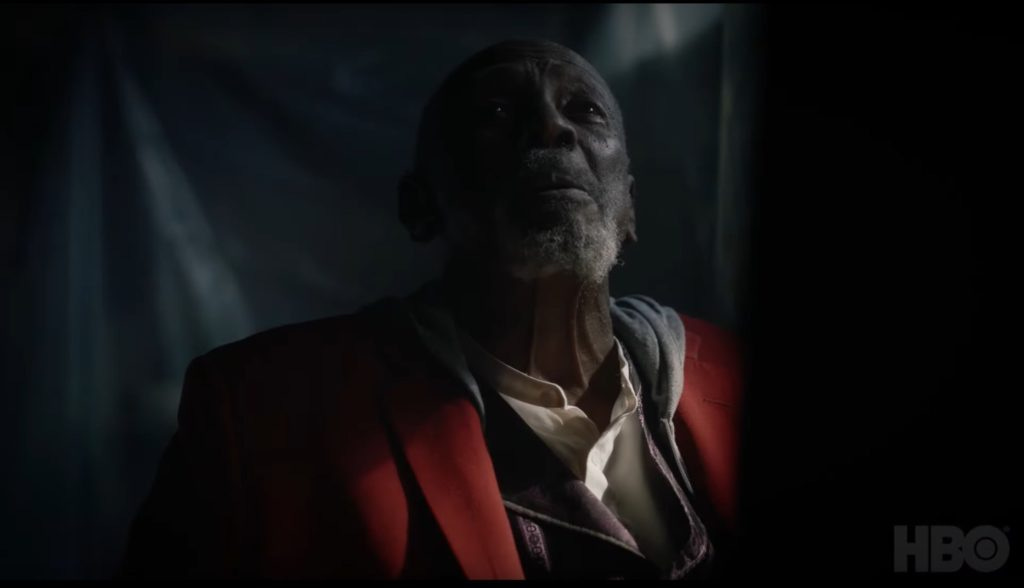Watchmen Means Something Now | Recap
Season 1 | Episode 101 | "It's Summer and We're Running Out of Ice" | Aired October 20, 2019
I'm a lifelong Watchmen fan. It's a condition I've been actively striving to recover from for most of my adult life. I received the graphic novel, along with a copy of The Dark Knight Returns, as a gift on Christmas in 2004, just before I turned 13. I saw Zach Snyder's 2009 film adaptation on my 18th birthday, after being stood up for a date. I even named a podcast after it as a joke that went too far. But tonight was the first time I can remember the word "Watchmen" eliciting, within me, an emotional reaction.
Well, that's not true. The first time I can remember the word "Watchmen" eliciting an emotional reaction within me was this amazing tweet from Alanna Bennett.
https://twitter.com/AlannaBennett/status/1034571344447336449
But tonight was the second.
Although I loved Watchmen growing up (and I did, and do, love Watchmen) I've felt a gap between myself and the story. While others kneel down at the altar to worship it's "genius," I've always felt like it was just a cool superhero story, with a big squid and an ending you don't quite see coming. I think that gap is attitudinal in nature. Because unlike Watchmen, I love superheroes.
The original comic series Watchmen was written by Alan Moore from 1986-87. And as far as I can tell, Alan Moore hates superheroes. Not just that, he hates comic books. Moore's twelve issues of Watchmen were held up as pioneering for how they reimaged superheroes as normal people. But looking as Watchmen as just one instalment in a career, Moore's disdain for the genre begins to shine through. While audiences read Watchmen as "What if superheroes were just people?", Moore wrote it as "What if superheroes were just people?".
You know, people. Those gross and loathsome things that buy comic books.
This perceived difference hasn't stopped me from loving the story. Those twelve comic issues are some of my favorite in the canon. They're beautifully colored. Their artistic style has been formative in instructing the modern era of comics. And the story, though I like to make fun of it, was groundbreaking at the time. Where I take umbrage with Watchmen is in the repetition. For the better part of the last 30 years, popular comics have just been retreading the ground Watchmen already walked.
What if this hero was just a normal person? How about if that hero had those kinds of problems? What if this hero died or that one became evil? For too long now, the spectre of Watchmen has been all echo and no sound.
Until today.
The New Watchmen
With his new HBO series, Damon Lindelof has taken the first steps forward in the Watchmen oeuvre since 1987. And where Moore's series asked, "What if superheroes were just people," Lindelof is asking "What if people were just superheroes?"
The series begins with the Tulsa Race Massacre, an event in American history that is tragically under-discussed. The guttural and graphic depiction of Klan members marching through the streets of Tusla Oklahoma, guns in hand, make it clear that Lindelof has things he wants this show to talk about.
Lindelof's camera follows one family as they fight their way through the violence to safety. The father carries his son through the streets, dodging bombs and bullets to get to safety. Meanwhile, the mother carries a rifle in her hand constantly weighing the risks and benefits of using it on any white supremacists that wander too near her family's hiding spot. The emotion of the situation makes it clear that Watchmen is not interested in pulling any punches about the nature of humanity.
But then, when the mother and father must send their son out of town on his own like Kal-El of Krypton, it is also clear that this show knows comics. And that double-whammy of authority is exactly what a Watchmen TV series needs.
The bulk of the episode is pretty straight forward. It sets up a world that exists after the events of the Watchmen comic (not the movie). In the world of the show, police officers are under constant threat of attack. As a result, they wear masks to protect their identities. A terrorist organization called the Seventh Cavalry has made a threat against the police. The audience is forced to balance the use of extraordinary police tactics against the extraordinary threat they face.
In short, how do you feel about superheroes when those heroes are "just people?"
The Future of Watchmen
After only watching one episode, I feel confident in saying that Watchmen will be the best show this year. Regina King and Tim Blake Nelson have already come out swinging with incredible performances in episode one. The themes that the show is working with are important, and the way it weaves them into the structure of the narrative is immaculate.
Many creators would be handed the most well-known comic series of all time, and make a TV adaptation that mirrors it frame for frame, start to finish. That's a safe way to do something that will entertain people. Lindelof's Watchmen is only interested in the biggest ideas Watchmen has to offer. He folds those into the tapestry of ideas that are relevant in 2019. And in this way, he's created something new.
And it's something exciting.
Watchmen airs on HBO Sunday nights at 9 pm Eastern Time.



